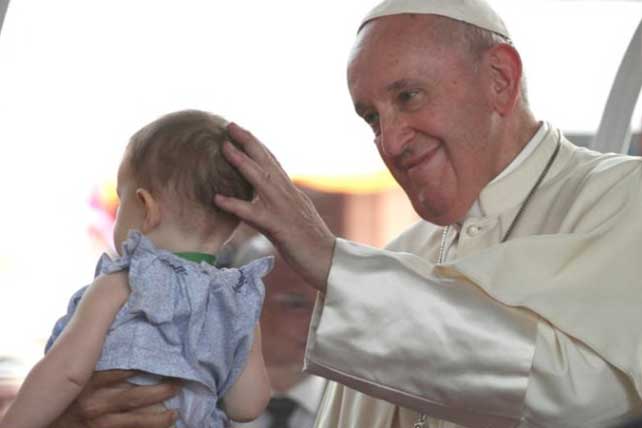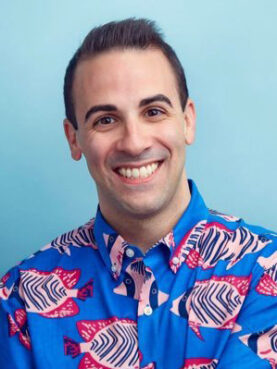VATICAN CITY (RNS) — Pope Francis’ recent condemnation of surrogacy, which equated the practice with human trafficking, is nothing new in the Catholic Church, but, after he opened the door to same-sex blessings, it felt like a step backward to many in the LGBTQ community and others who look to surrogacy as a path toward building a family.
“I deem deplorable the practice of so-called surrogate motherhood, which represents a grave violation of the dignity of the woman and the child, based on the exploitation of situations of the mother’s material needs,” Pope Francis told ambassadors from all over the world in a long speech at the Vatican at the start of the year.
The pope called for a global ban on surrogacy, which he said turns the child and the mother into “an object of trafficking.” The pope also railed against abortion, in-vitro fertilization and gender ideology in his speech to diplomats.
RELATED: For LGBTQ Catholics, New Declaration on Blessings Is Welcome—But Complicated
While many in the Catholic Church share the same views, members of the LGBTQ community and surrogacy advocates were taken aback by the pope’s strong words.
“Like pope Francis I don’t want women to be exploited,” said Brandon Ambrosino, a theologian and ethicist at Villanova University, in an interview with Religion News Service. “But I also know, from personal experience, that it’s possible to pursue third-party reproduction in non-exploitative ways.”
Brandon Ambrosino. (Photo via Villanova)
Ambrosino, a Catholic, and his husband decided they wanted to become parents early on in their relationship. Thanks to a close friend who offered to carry the child, they were able to pursue surrogacy. When Ambrosino read about Francis’ statements, he said he wished the pope would listen to positive experiences like his own.
“I find the pope very open to personal encounters, and I do believe that if he opens his heart to dialogue with intended parents who have pursued IVF he might genuinely be surprised,” he said.
For Abbe Feder, founder of InCircle Fertility, which helps hundreds of individuals facing fertility issues in Los Angeles, the pope’s comments struck a nerve and reverberated through social media and messaging apps in her “tight knit and close” community.
“When Pope Francis’ comments were made, it hit the community like a ton of bricks,” Feder told RNS in an online interview on Monday (Jan. 22). “I don’t think anyone has the right, especially a male leader followed by so many people, to make a judgment on whether surrogacy is ok or not.”
Many couples already face the stigma of not being able to have a child when dealing with infertility issues, she said. “For someone else, who is never going to be a father anyway, to weigh in on that is all the more hurtful and puts us in a defensive and vulnerable position,” she added.

Abbe Feder. (Photo via InCircle Fertility)
Feder, who is Jewish, went through her own challenges with infertility before deciding to share her knowledge with other individuals seeking alternative ways to start a family. She said that as the technology progresses and more insurance companies cover the costs of surrogacy or gestational carriers, the practice is growing rapidly in the United States, and the stigma is diminishing.
The Vatican’s doctrinal office recently allowed the practice of blessing gay couples, which was interpreted as a historic opening for the church. Michael McDonnell, executive director of Survivors Network of those Abused by Priests, or SNAP, praised the Vatican’s decision but said the popes’ statements send mixed signals to LGBTQ individuals.
“Wasn’t the Blessed Mother a surrogate parent?” he said in an interview with Religion News Service on Jan. 12.


